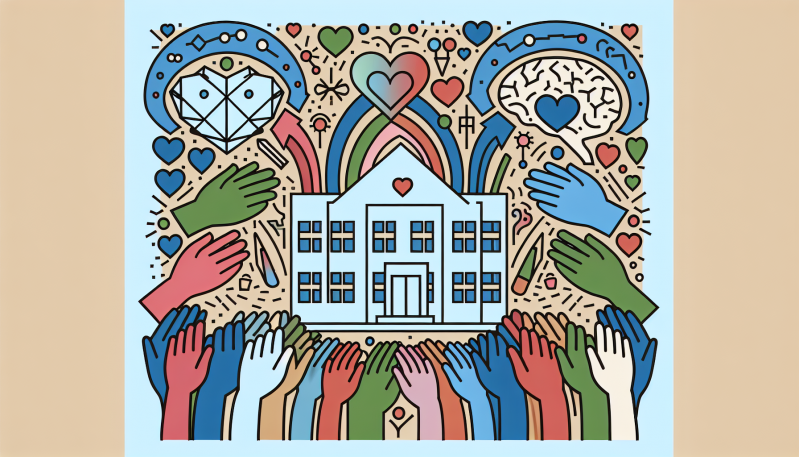As educators and parents, one of the most pressing concerns is safeguarding our children from the risks of substance abuse. The delicate years of elementary, middle, and high school are not just about academic growth but also about personal development and social learning. These are the years when the foundation of one’s character is laid, when lifelong friendships are forged, and when young individuals begin to find their place in the world. However, this is also a time when they may encounter peer pressure, which can significantly influence their choices and lead some towards harmful behaviors such as substance use or abuse.
The landscape of peer influence is complex and shifting, particularly in the current digital age where social media can amplify pressures and create new challenges. The impact of social circles on youth behavior cannot be overstated. Friends play a crucial role in a child’s life; their acceptance and opinions often shape decisions, for better or worse. This is why the role of schools and families in building resilience and positive decision-making skills in children is absolutely vital.
At Friendship Week, we understand the necessity of addressing these issues head-on. Our mission, akin to UNICEF’s in its breadth and depth, focuses on mental health, kindness, loneliness, and diversity, equity, and inclusion (DEI). We advocate for the well-being of school kids and support parents and educators in this joint effort.
The effectiveness of current prevention programs varies, but one thing is clear: open communication about the dangers of drugs and alcohol is essential. Research shows that children who have conversations with their parents and educators about the risks of substance use are less likely to indulge in such behaviors.
This blog post aims to outline a comprehensive roadmap for schools and parents to create a collaborative preventive strategy:
1. Education and Awareness – Implement age-appropriate educational programs that demystify drugs and alcohol, exposing the harsh realities behind the veil of ‘coolness’ often portrayed by peer groups or media.
2. Cultivating a Supportive Environment – Create a culture within schools that promotes inclusivity and kindness. Children should feel they are part of a community where they can thrive without the need for harmful substances.
3. Identifying At-Risk Students – Develop a system to recognize the early signs of loneliness, mental health challenges, or susceptibility to peer pressure, so that interventions can happen in a timely manner.
4. Empowerment Through Skills – Equip students with social and emotional learning (SEL) skills that empower them to make healthy choices and resist peer pressure.
5. Building Strong Relationships – Encourage strong educator-student and parent-child relationships. A trusted adult can serve as a powerful counterbalance to negative peer influence.
6. Inclusivity and Equity – Ensure that DEI principles are integrated into substance abuse prevention programs, recognizing that marginalized communities may face unique challenges and risks.
7. Parental Involvement and Education – Offer workshops that help parents understand the modern dynamics of peer pressure and teach them how to communicate effectively with their children about these issues.
8. Peer Mentorship Programs – Initiate programs where older students mentor younger ones, fostering a sense of responsibility and community.
9. Professional Support Services – Provide access to counselors and mental health professionals for students who need additional support.
Navigating the path of adolescence is no simple task, and the pressure to fit in or give in to harmful behaviors is a reality many students face. It is our collective responsibility to ensure that our strategies for prevention are as dynamic and multifaceted as the influences that confront our children. By walking this road together, schools and families can create a fortress of support around our students, helping them to emerge as healthy, happy, and empowered adults.
Join us at Friendship Week in this critical discussion, as we strive to not only prevent substance abuse, but also to address the underlying issues that lead to it, fostering an environment where every child has the right support, guidance, and opportunities to grow in a safe and nurturing atmosphere, free from the pressures that lead to substance use.



